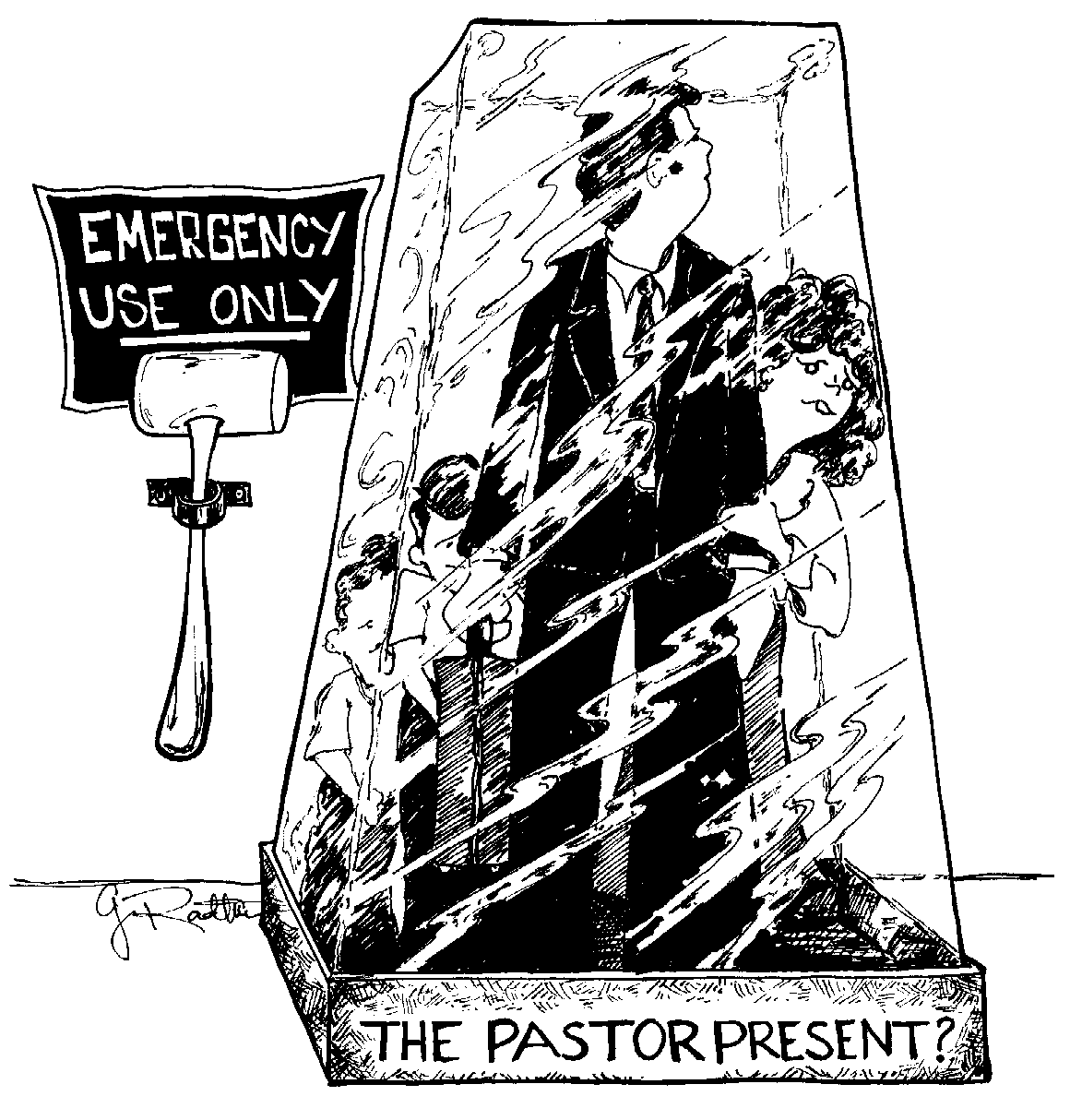|
| ||

Illustration by Greg Radke
Do our church traditions erect artificial barriers?
The writer lives in Washington with his wife, Patty, and their two children, Matthew, 15, and Lori, 11. A 1971 graduate of Ambassador College, Pasadena, he served 15 years in the ministry in the Church of God International until May 1995. He is not part of any organized group but seeks to build bridges among brethren in (and out of) organizations.
By Lee Lisman
BATTLE GROUND, Wash.-As the story goes, a young mother was cutting a roast in half before placing it into the oven, then stopped and wondered why she had always cooked a roast that way. So she asked her mother, who was also in the kitchen, "Mom, why did you teach me to cut the roast in half before cooking it?"
Her mother's reply was, "Well, I taught you to cut it in half because that's just the way my mother taught me. Why don't we go into the living room and ask your grandmother why she taught me to always cut the roast in half?"
When asking Grandma why she had taught her daughter to cook a roast that way, her reply was, "Oh, back then we had only one small roasting pan, so we always had to cut the roast in half to fit it in."
From time to time it's helpful to stop to question why we do some of the things we do. Like the cutting of a roast in half, the purpose for doing some things may have long expired.
In church this can also be true when dealing with what could be called church traditions, except that these can be harder to change than cooking methods.
There's nothing wrong with having church traditions, and some traditions lend a semblance of stability.
Some of what we might consider traditions, however, are just habits or customs we develop. Unlike God's Word, traditions aren't timeless, and all traditions should be freely open to discussion or change. After all, traditions are something we make ourselves.
Years or even generations may go by after a tradition is started, with people becoming set in their ways. Traditions can take on an unquestioned importance of their own. Like Tevye in Fiddler on the Roof, nobody stops to question a tradition because, well, it's tradition!
People can get so comfortable in their traditions that even to think of changing them can seem like a sin (or giving in to liberalism). Start tampering with the Bible-study format, and to some that can be the first step to eliminating the Ten Commandments.
There's quite a difference, however, between questioning a tradition and questioning God's law.
Sometimes a tradition has served its purpose or needs to be changed (such as women not being allowed to wear pants unless the zipper is on the side). Some church traditions should never have been instituted in the first place (such as all black brethren in the United States being allowed to attend only one Feast site).
Change is something that is not easily accepted by most of us. And we do need to delineate between change for change's sake and change at the direction of God's Spirit. This is part of what growing is all about.
The religious community in Jesus' day was much into its traditions and against any change in those traditions. By placing the law of God in the shadow of their traditions, religious leaders imposed an outward measuring rod of righteousness defined by themselves.
Jesus cautioned His disciples about many of the traditions of the scribes and the Pharisees. Some traditions for the Pharisees were actually superseding the law of God (Matthew 15:6; Mark 7:13). A Pharisee's tradition could plainly be contrary to Scripture, but human reasoning kept the tradition alive and well.
These traditions were part of the "old wineskins" that couldn't hold the "new wine" Jesus was bringing (Matthew 9:17). Many times in the Gospel accounts we see Jesus warning His disciples about what the scribes and Pharisees were doing because He didn't want His disciples (and His church) to make the same mistakes.
**********
Publisher's note: In the print version, which contains the entire text of this article, the writer discusses traditions such as special seating for ministers, special dining arrangements for elders at Feast sites--even the custom of calling a minister Mr. Smith or Mr. Jones instead of John or Bill.
He also makes an interesting case that the gathering at Jerusalem spoken of in Acts 15 was not a ministerial conference.
See Lee Lisman's entire article on traditions in the Churches of God in the print version of the Aug. 29 issue of The Journal.
Church Links - Addresses - Church Logos - Finances - Photos - Memorial
The Study Library - In Transition - Messages Online - Live Services
Back Issues - Subscribe - Email List - Ad Rates - Site Map
© The Journal: News of the Churches of God